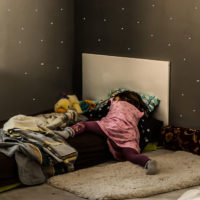Cohort study
-

Most Cited JCPP Articles #46 of 60
Most cited JCPP papers #46 of 60: Longitudinal pathways linking child maltreatment, emotion regulation, peer relations, and psychopathology
Read more -

Most Cited JCPP Articles #51 of 60
Most cited JCPP papers #51 of 60: Developmental language disorders a follow-up in later adult life. Cognitive, language and psychosocial outcomes
Read more -

Most Cited JCPP Articles #60 of 60
Most cited JCPP papers #60 of 60: Outcome at 7 years of children diagnosed with autism at age 2: predictive validity of assessments conducted at 2 and 3 years of age and pattern of symptom change over time.
Read more -

Sleep problems in preschoolers predict depression and anxiety severity
The bidirectional links between sleep problems and psychopathology in children have been well-reviewed,1 but few investigations have been performed in young samples and those with early-onset psychopathology.
Read more -

Day-time naps promote vocabulary growth in early childhood
Napping is at least as important, if not more so, than night-time sleep when it comes to vocabulary learning in early childhood. Find out why.
Read more -

Time spent awake during the night in infancy is a marker for cognitive trajectories
This article is a summary of the Original Article in the JCPP: Infant wake after sleep onset serves as a marker for different trajectories in cognitive development – by Pisch et al.
Read more -

Early speech sound disorder alone confers a low risk on reading difficulties
Early speech sound disorder (SSD) combined with other risk factors, such as language impairment (LI) and dyslexia, can have negative consequences on literacy development, according to new research from Marianna Hayiou-Thomas and colleagues.
Read more -

Children with a language disorder are vulnerable to sexual abuse
Preliminary data suggest that children with language disorder may be at an increased risk of child sexual abuse (CSA),1,2 but few have studied the CSA experiences, disclosure patterns or reactions to disclosure in these children.
Read more -

Police contact during adolescence can delay female psychosocial maturation
Over the past 30 years, the rate of female juvenile arrests in the USA has almost doubled. Despite this rapid increase, most research into juvenile delinquency has primarily focused on males.
Read more -

Low empathy in adolescent boys predicts violent behaviour in adulthood
Low empathy and low resting heart rate are established, independent risk factors of antisocial behaviour. Now, researchers from the University of Pittsburgh have studied whether an interaction between these two factors during adolescence might mediate violent behaviour in early adulthood.
Read more